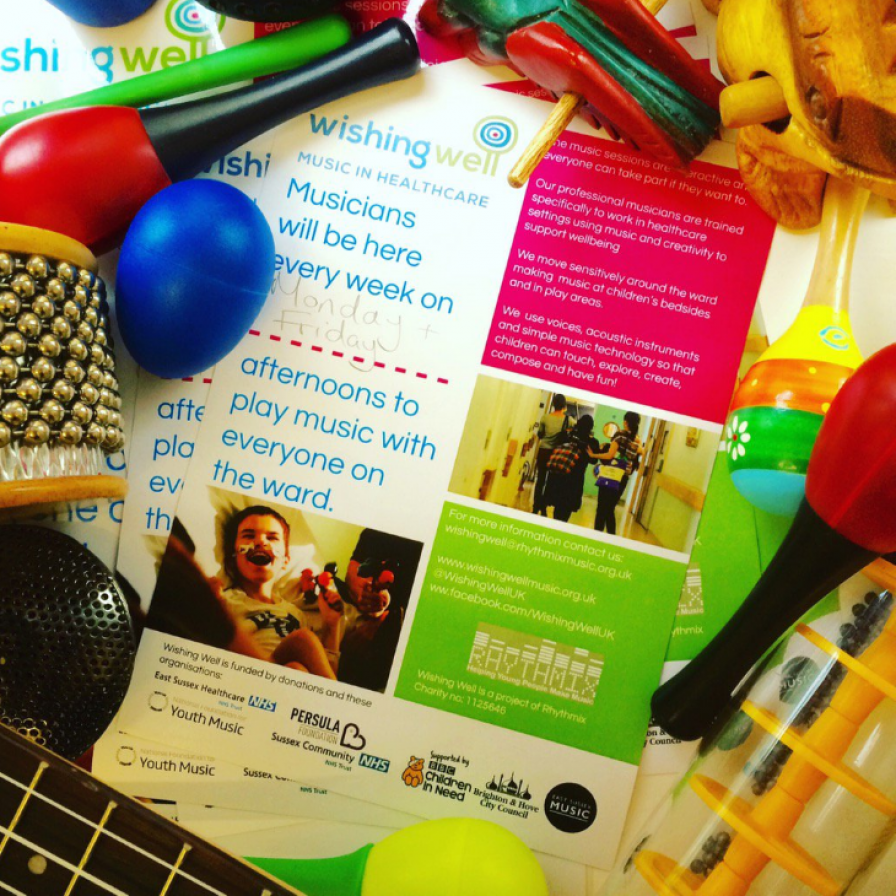Personal Reflections from the Wishing Well Musicians In Healthcare

To help us learn more about the impact of music making in hospitals on our team of musicians, the healthcare professionals they work with and the children and families they support we commissioned an evaluation from Dr Anneli Haake. Dr Haake carried out a thematic analysis of the reports that the Musicians write up as part of their reflective practice as Musicians in Healthcare.
Her independent study found results suggesting a number of things:
-
the Wishing Well programme has positive effects for patients, families and caregivers
-
a balance is needed between welcoming staff’s assistance in prioritising which patients should take part in the music activities and allowing the musicians to use their expertise when approaching patients, in order to achieve the most positive outcome for patients
-
opportunities for musicians to practice self-care are necessary in order to avoid “burn out” and emotional trauma
-
Building and strengthening relations with staff seems helpful for these types of music making programmes
Dr Haake writes, “The musicians all observed positive effects for the patients, consistent with research on the effects that music in children’s hospitals can have. These included enhancing cognitive abilities, communication skills, and physiological abilities. The parents/caregivers also responded positively to the music sessions, which is likely to have a positive effect on the child.”
The report highlights how effective music making can be in reducing the anxiety of children and young people in hospital:
“One of the nurses told us we were needed in medical ward, and that a member of the medical staff had asked for us to visit a young person who was currently having a panic attack due to pain. We arrived at the bedside and the young person was visibly distressed, with shallow rapid breathing, visible tension in the face and body, and wincing vocal sounds. A member of the medical staff was on one side of the bed and mum was on the other. The medical staff was speaking gently to the young person to try to calm him, and saying “just focus on the music”. The young person's’ breathing became slower and more regular, and their body visibly relaxed, until they reached sleep. The medical staff thanked us after, saying “that was perfect”.
The positive effects for parents were also shown to be widespread, from helping to build positive memories and experiences of parenting as part of a child’s end of life care to helping parents grow more confident in bonding and communicating with their children in a hospital setting.
Dr Haake explains the staff worked in synergy with the musicians, recommending their patients for musical interactions and briefing the musicians on the challenges the children and families were facing. Both musicians and staff found they could work most effectively to improve the experiences of children in hospital if they worked together.
To read the full report on how Wishing Well is making a difference to the lives of children and families in hospital, head to the Wishing Well website’s new evaluation section.
